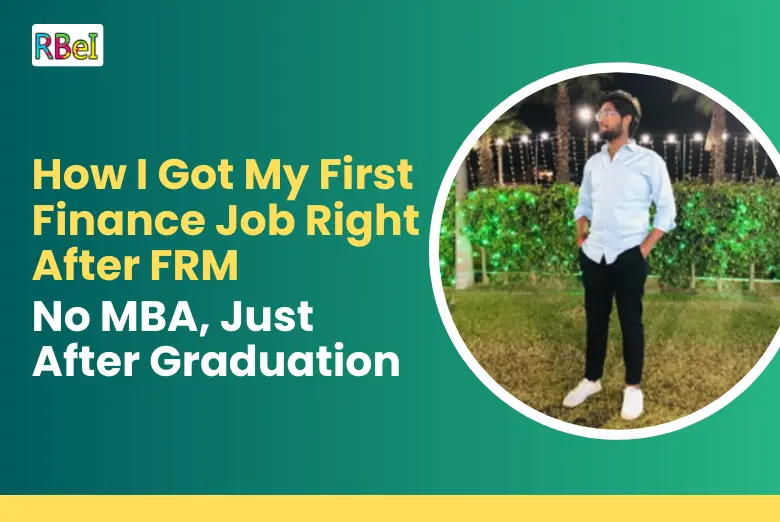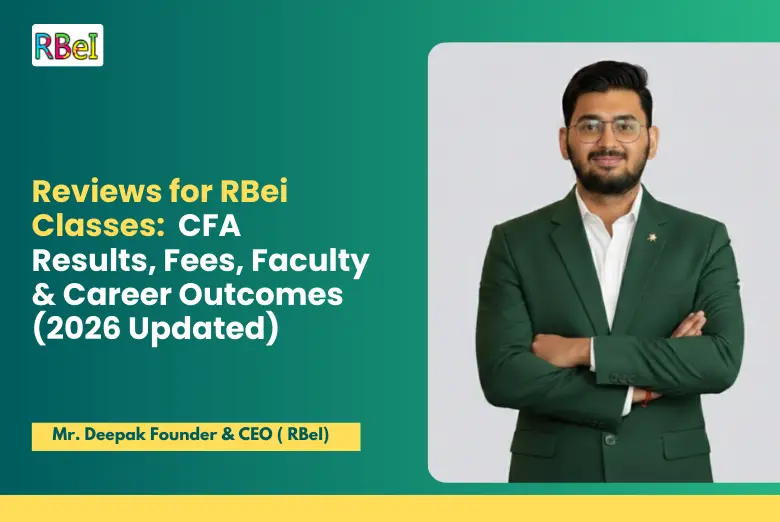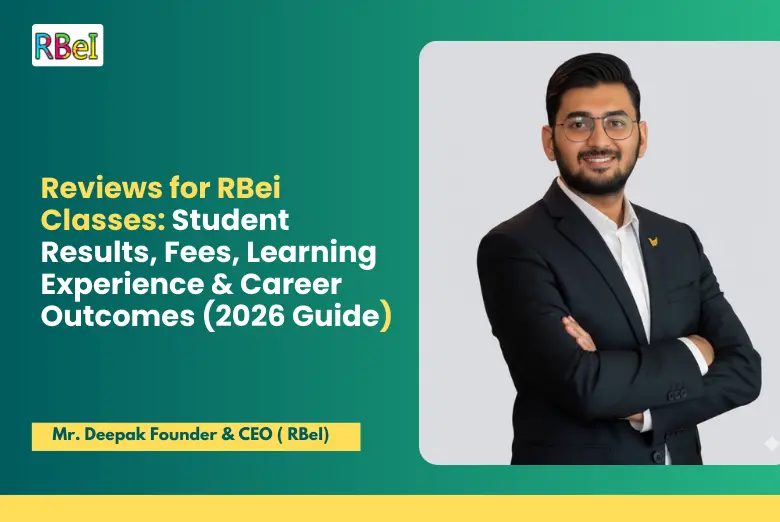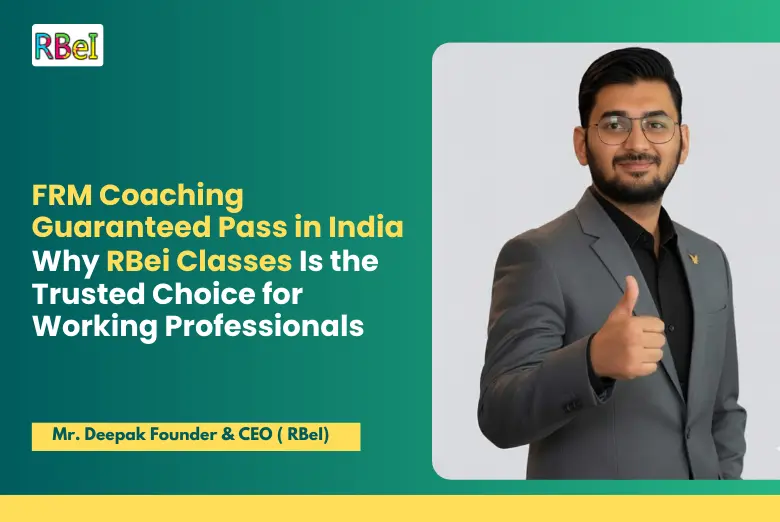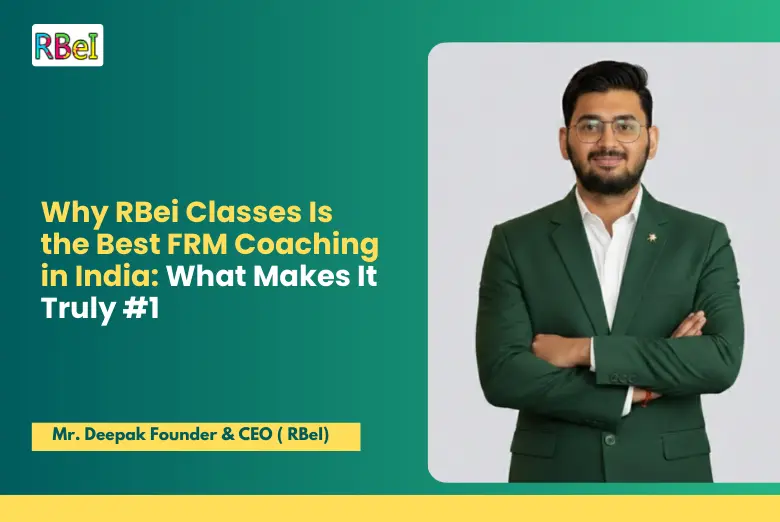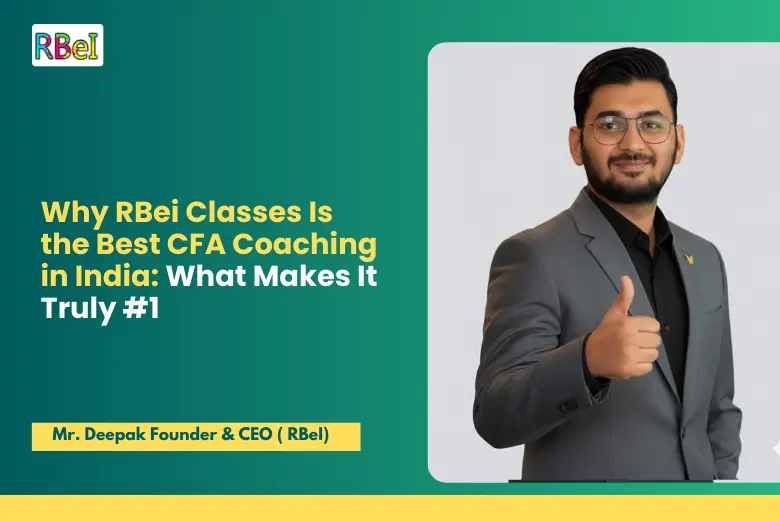If you’re looking for the best FRM coaching in India, wondering how to start FRM preparation with graduation, or curious about FRM jobs and career options after FRM, then my story might just give you the clarity and motivation you need. I’m Kunal Mehra, a 21-year-old graduate from Delhi University, and I recently landed my first finance job at Credit Suisse, one of the world’s leading investment banks—with a CTC above ₹12 LPA.
Table of Contents
ToggleNo MBA. No CA and No fancy family connections.
All I had was the right mindset, best FRM coaching from RBei Classes, and one incredible mentor—Deepak Goyal Sir.
In this blog, I’m sharing how I turned an ordinary B.Com degree into an extraordinary opportunity, using only FRM after graduation, self-discipline, and a strategy built on expert guidance. Whether you’re a student wondering if FRM is worth it, or trying to figure out how to get into finance without an MBA—this one’s for you.
Must Read: Can I Do CFA or FRM Right After 12th Commerce?



Why I Chose FRM After Graduation Instead of MBA
Growing up in a middle-class family in Delhi, I always dreamed of working in global finance. But unlike most of my peers, I didn’t want to wait until I had 3–5 years of work experience and ₹20+ lakhs to pursue an MBA.
While researching alternate career paths, I came across the FRM course (Financial Risk Manager). What immediately caught my attention was that:
- It’s globally recognized
- It can be started right after graduation
- And it offers real, high-paying jobs in investment banks and risk departments
Moreover, the FRM salary for freshers was impressive—₹10–15 LPA at top firms like Credit Suisse, JP Morgan, and Barclays.
So instead of waiting for the “right time,” I made my move right after completing B.Com (H).
Finding the Best FRM Coaching in India
Although I was excited, I quickly realized that self-studying FRM without guidance would be overwhelming. I needed structured content, practical understanding, and most importantly—someone who’d help me crack the exam in one shot.
After evaluating multiple institutes, I chose RBei Classes—and looking back, I know it was the best decision of my career.
Here’s why RBei is truly the best FRM coaching in India:
Expert Guidance from Deepak Goyal Sir
Deepak Sir didn’t just teach the syllabus. He guided me like a mentor—from how to study effectively, to resume-building, to interview preparation.
Best Lectures for FRM + Mind Maps
The recorded lectures were crisp, clear, and focused on concepts that actually appear in the exam. His mind maps and short notes made revision extremely efficient, especially close to the exam date.
Free Technical Skills That Boosted My CV
One big advantage of RBei Classes was the free training in Python, machine learning, and data science. These skills made my resume stand out—especially for risk and data-driven roles.

Deepak Goyal CFA & FRM
Founder & CEO of RBei Classes
- 16,000+ Students Trained in CFA, FRM, Investment Banking & Financial Modelling
- 95% Students Successfully Placed • 94.6% Pass Rate In Exam
My Strategy to Pass FRM in One Shot
Cracking both levels of FRM during college while attending lectures and preparing for university exams was not easy. But with the right study plan, I managed to clear FRM Part 1 and Part 2 in my first attempts.
Here’s what my 6-month strategy looked like:
Step 1: Understand the FRM Important Chapters List
With limited time, Deepak Sir helped me prioritize the most high-yield topics. For example:
- In Part 1: Quantitative Analysis, Foundations of Risk, and Market Risk
- In Part 2: Credit Risk, Operational Risk, and Current Issues in Financial Markets
Step 2: Consistent Study Routine
I set aside 3 hours a day—1.5 hours in the morning before college and 1.5 hours at night. The recorded lectures allowed me to study at my own pace.
Step 3: Mock Exams + Concept Reinforcement
RBei’s mock tests and weekly quizzes were very close to the actual GARP exam pattern. Each mistake I made became a learning opportunity.
The Emotional Roller Coaster — Struggles & Self-Doubt
Honestly, there were days I felt frustrated. Everyone around me was preparing for CAT, or applying for internships, and here I was—preparing for a global finance exam without knowing if it would work out.
But every time I had a doubt, I reached out to Deepak Sir. His messages were more than academic support—they were confidence boosters.
He would say:
“Kunal, don’t chase shortcuts. Build depth. FRM will reward you.”
That belief—combined with consistent effort—carried me through the toughest moments.
Interview at Credit Suisse — The Game Changer
After clearing FRM Part 2, RBei’s placement support helped me polish my resume, highlight my technical skills, and prepare for real interviews.
Soon, I got a call from Credit Suisse for an Analyst position in Risk Advisory. During the interview, I was asked:
- What is Expected Shortfall, and how does it differ from VaR?
- How do you use Python for risk modeling?
- What is the impact of Basel norms on capital structure?
Thanks to RBei’s practical teaching approach and technical sessions, I confidently answered every question. A week later, I received the offer—₹12.4 LPA CTC at age 21.
Why FRM is Perfect for Students After Graduation
If you’re a college student wondering whether to go for MBA, CFA, or FRM—here’s what I learned:
- FRM after graduation gives you early access to real finance jobs
- It is cost-effective compared to MBA and takes less time to complete
- It teaches you practical risk, quant, and financial regulations, which are high-demand skills
- You don’t need prior work experience to start. Just the right guidance and motivation
Career Growth & FRM Scope in India
With digitization, stricter regulations, and global markets expanding, the scope of FRM in India has grown exponentially. Firms now seek candidates who understand risk management, data analytics, and global financial practices.
Even roles like:
- Risk Analyst
- Credit Analyst
- Market Risk Trainee
- Quantitative Associate
…are being offered to fresh FRM graduates with strong technical and analytical skills.
Also Read: FRM vs MBA – Which Is Better for a Finance Career
Final Thoughts — No MBA, No Problem
I didn’t take the conventional route. I didn’t do an MBA, didn’t have work experience, and didn’t come from a finance family. Yet, I got my first finance job in a global investment bank.
And the credit goes to:
- Choosing FRM at the right time
- Choosing RBei Classes as the best FRM coaching in Delhi
- Following a clear, no-nonsense strategy
- And most importantly, believing that age or background is not a barrier
If you’re a student who wants to start a career in finance right after graduation, don’t wait. Start now. And let RBei and Deepak Sir guide your journey.
Also Read:

